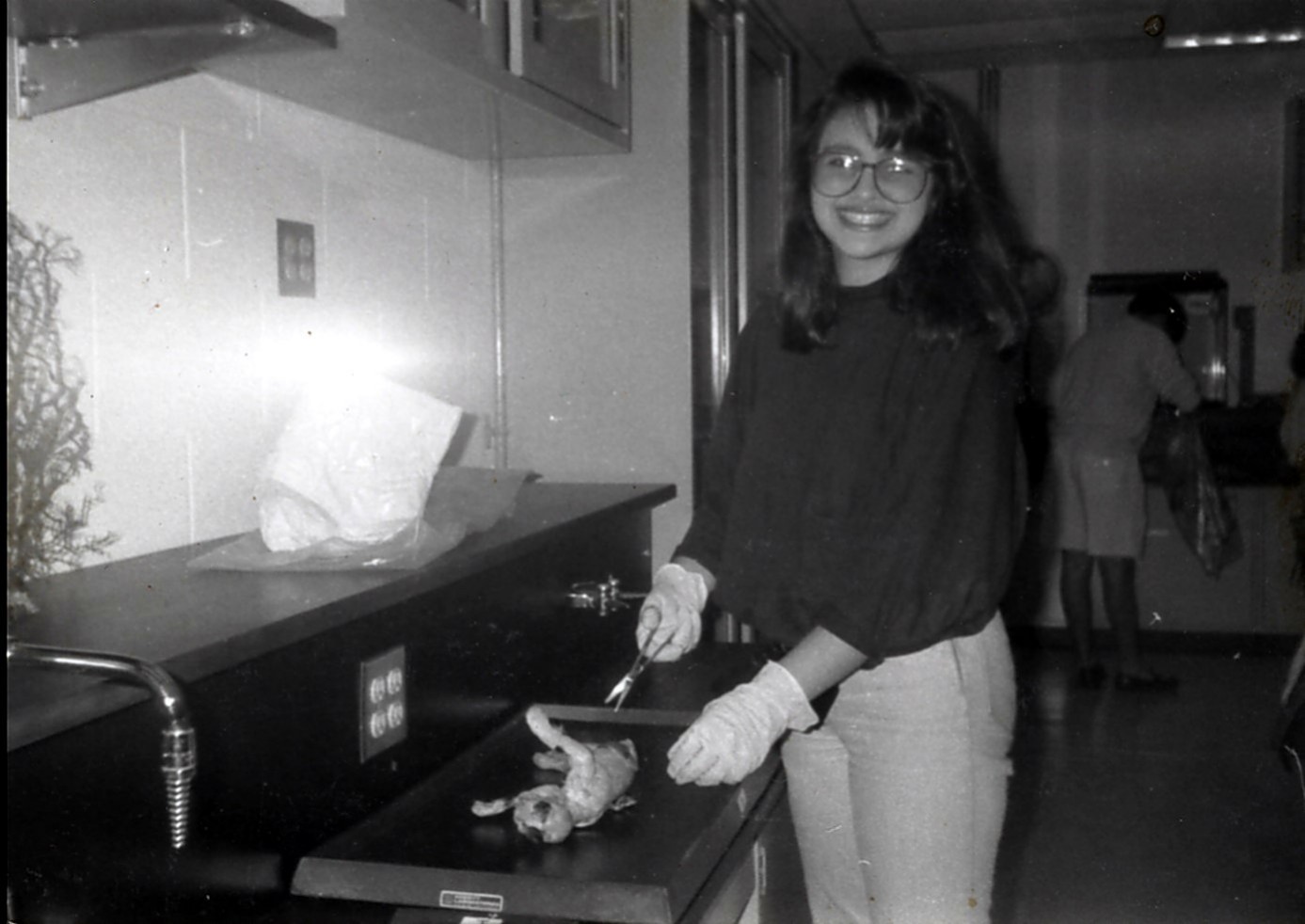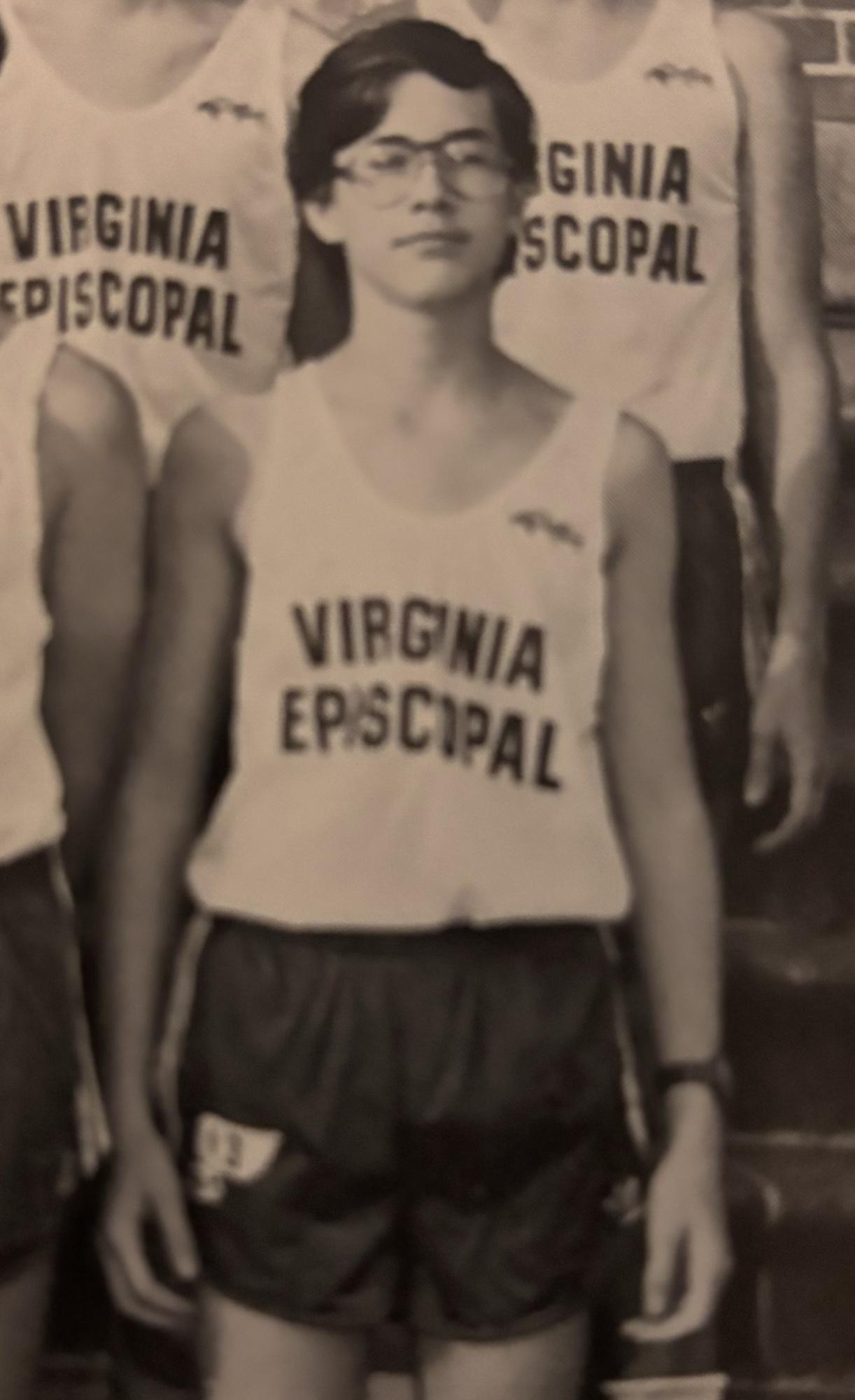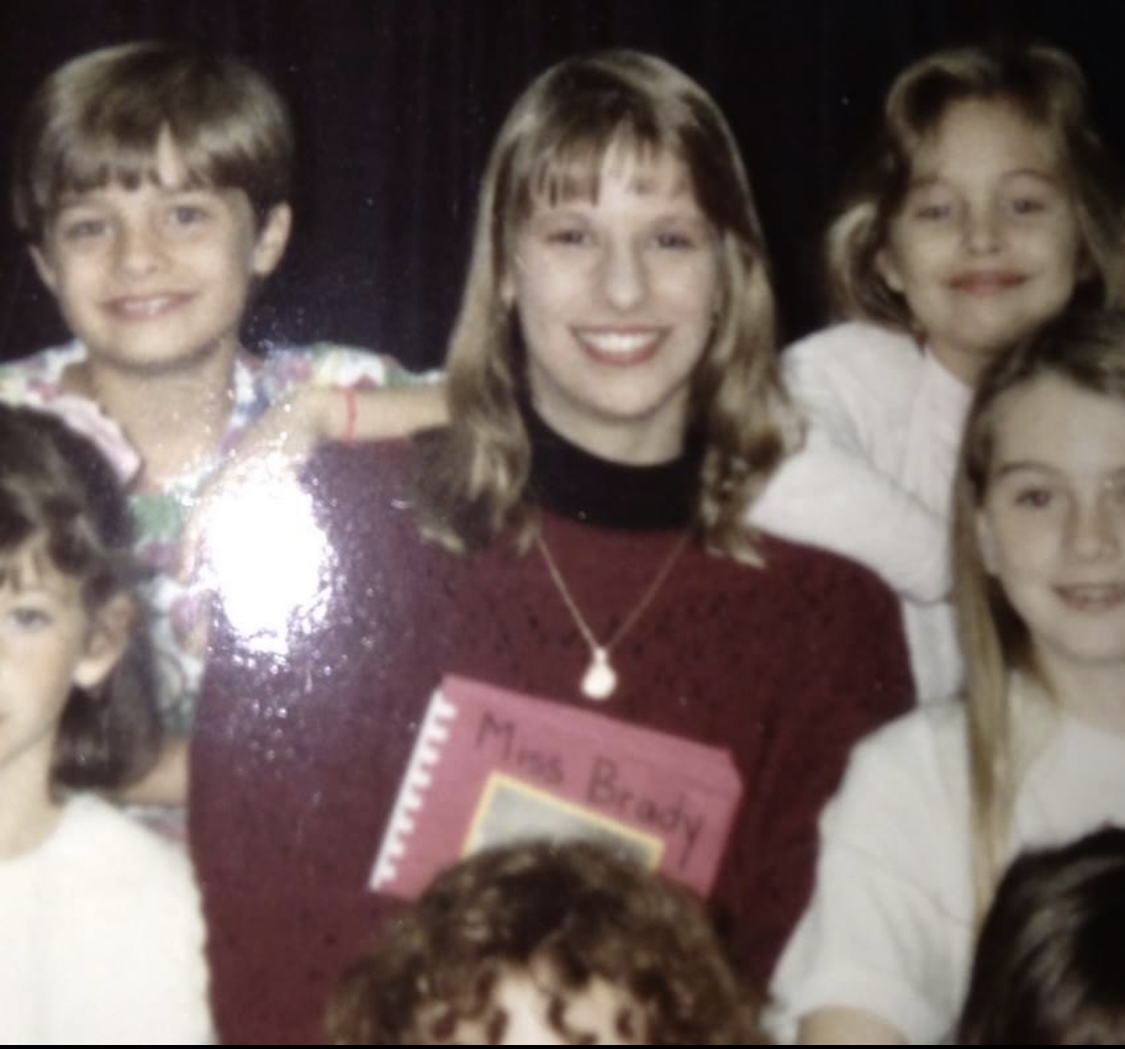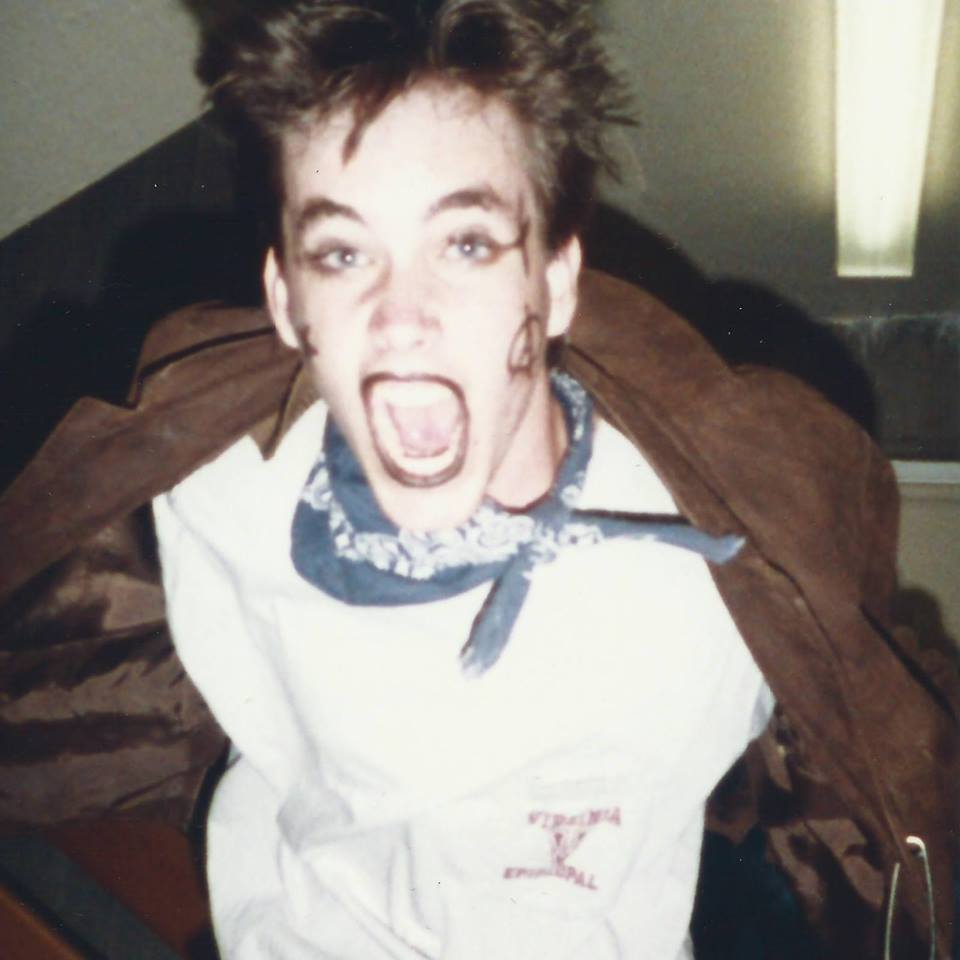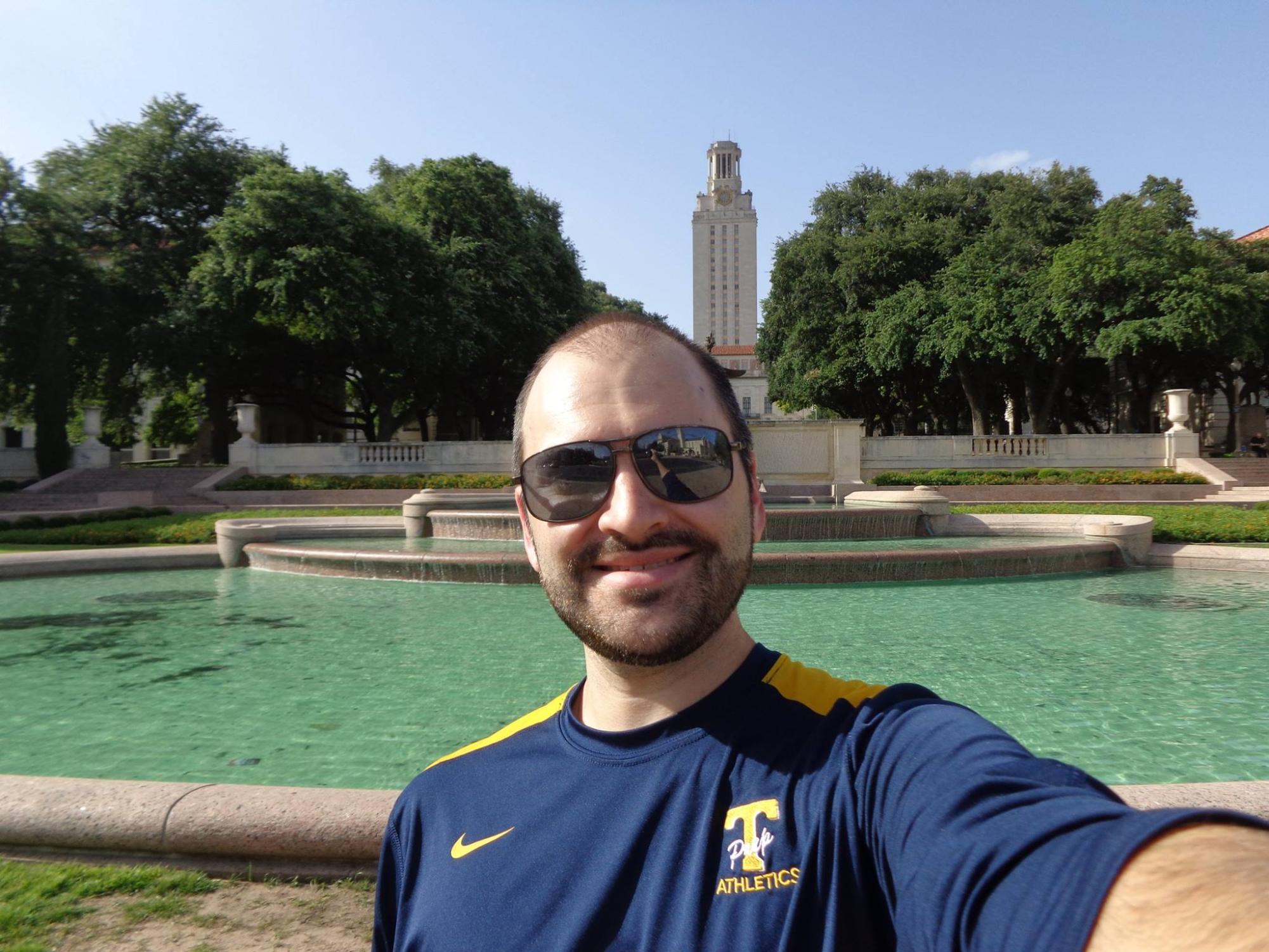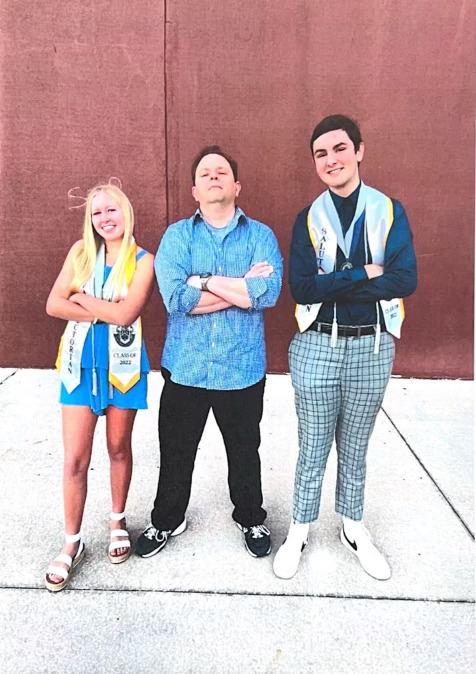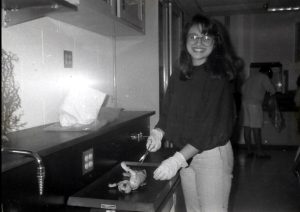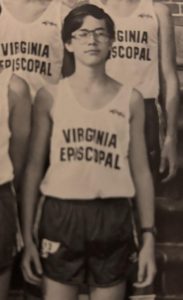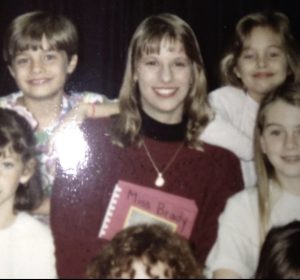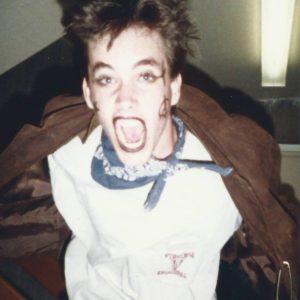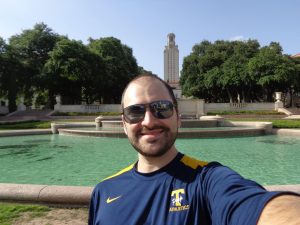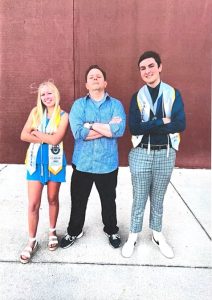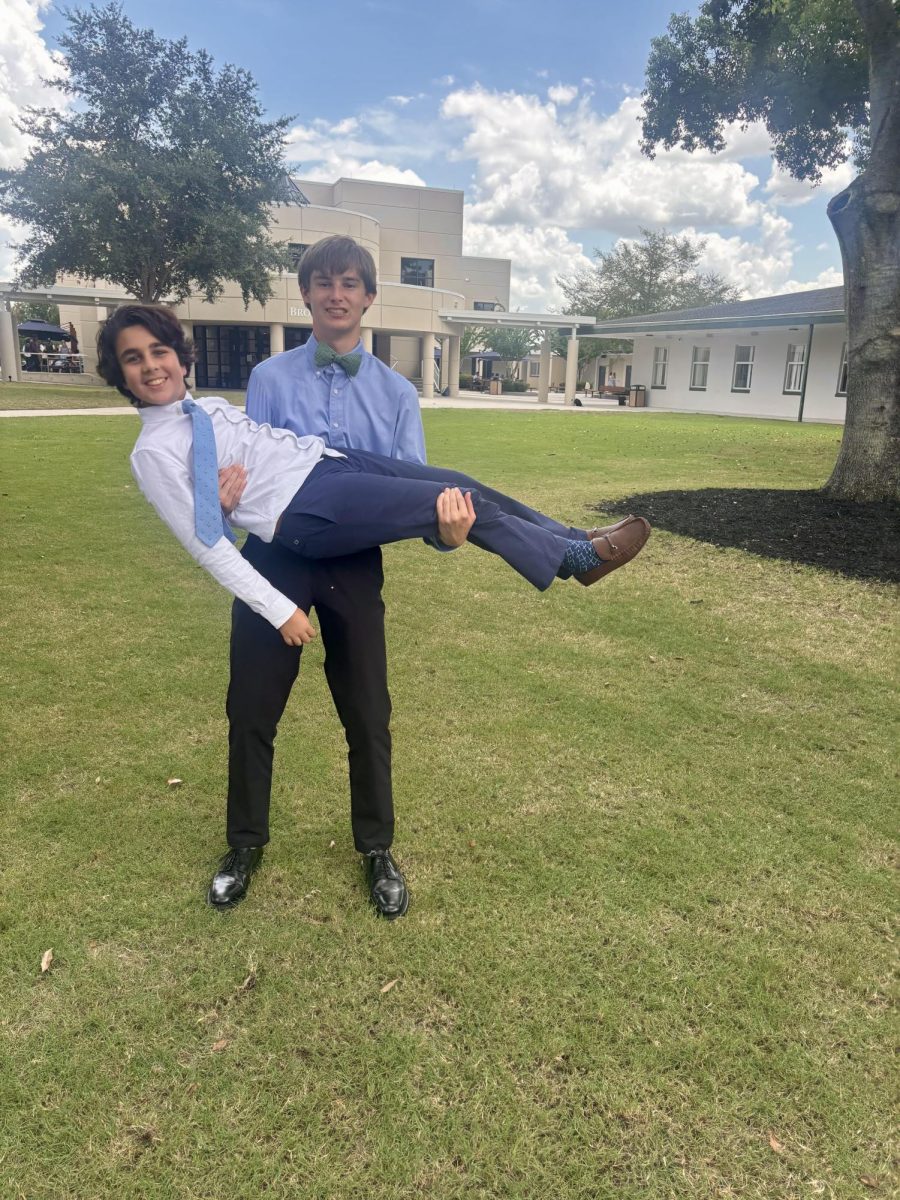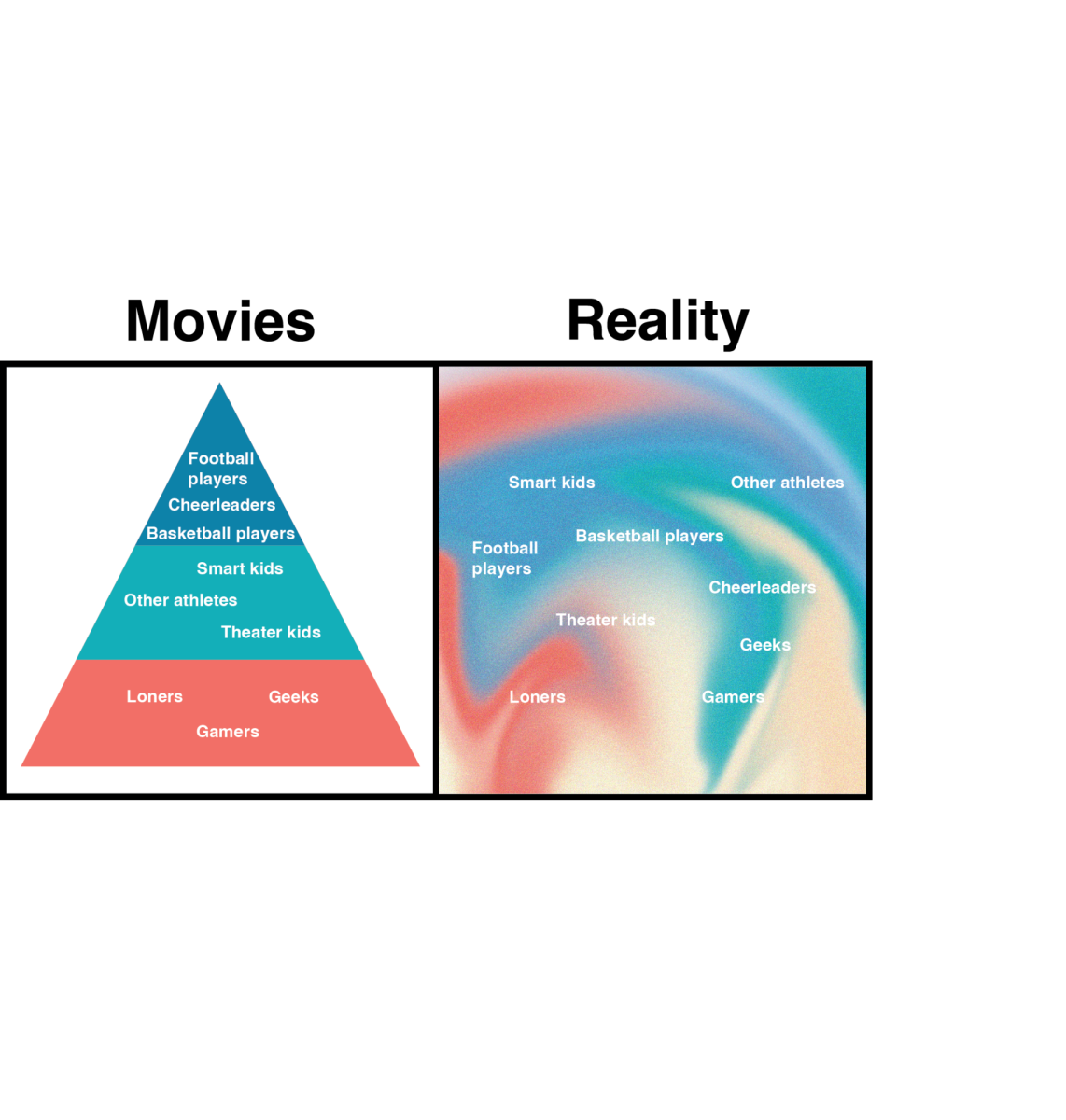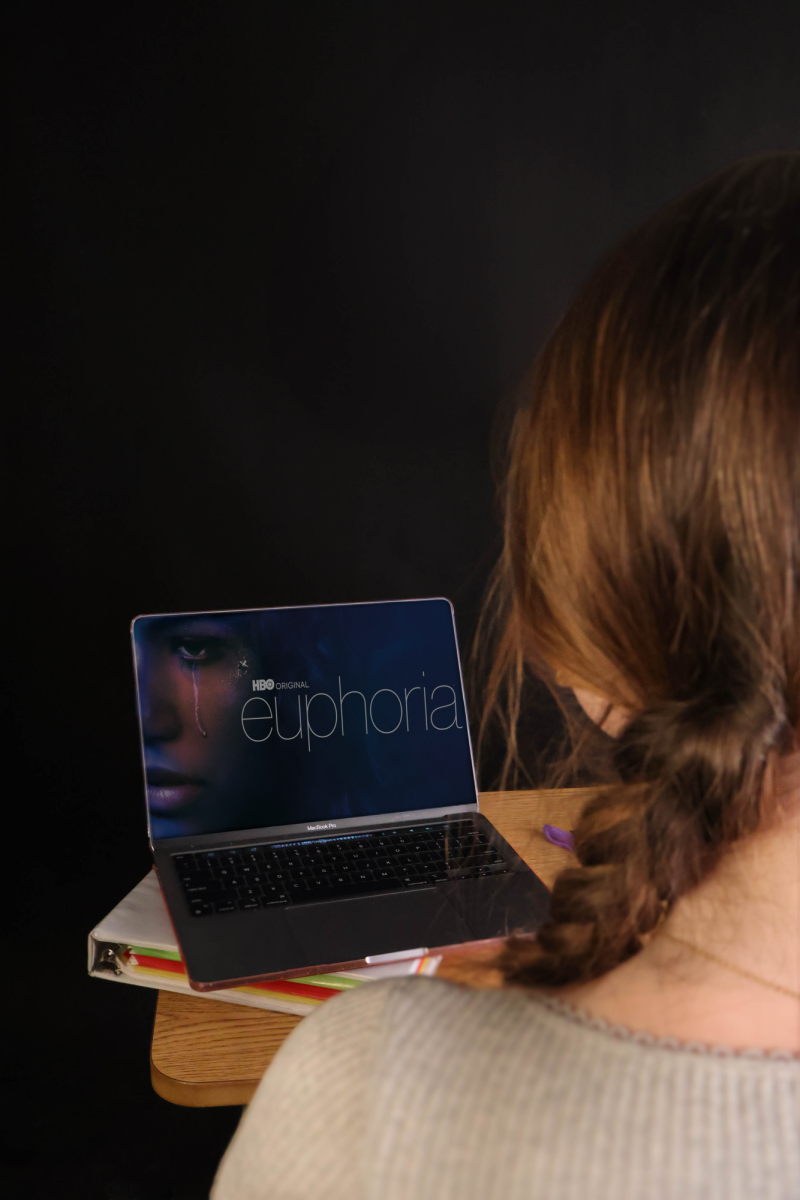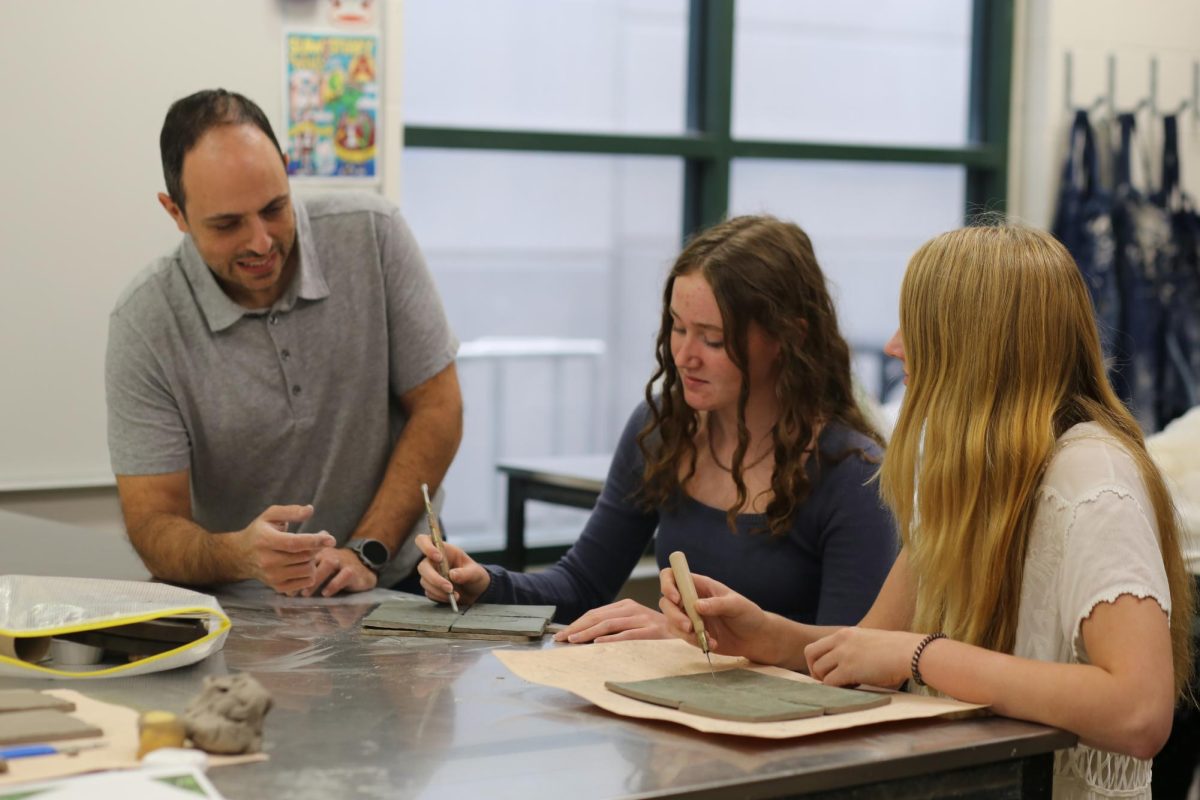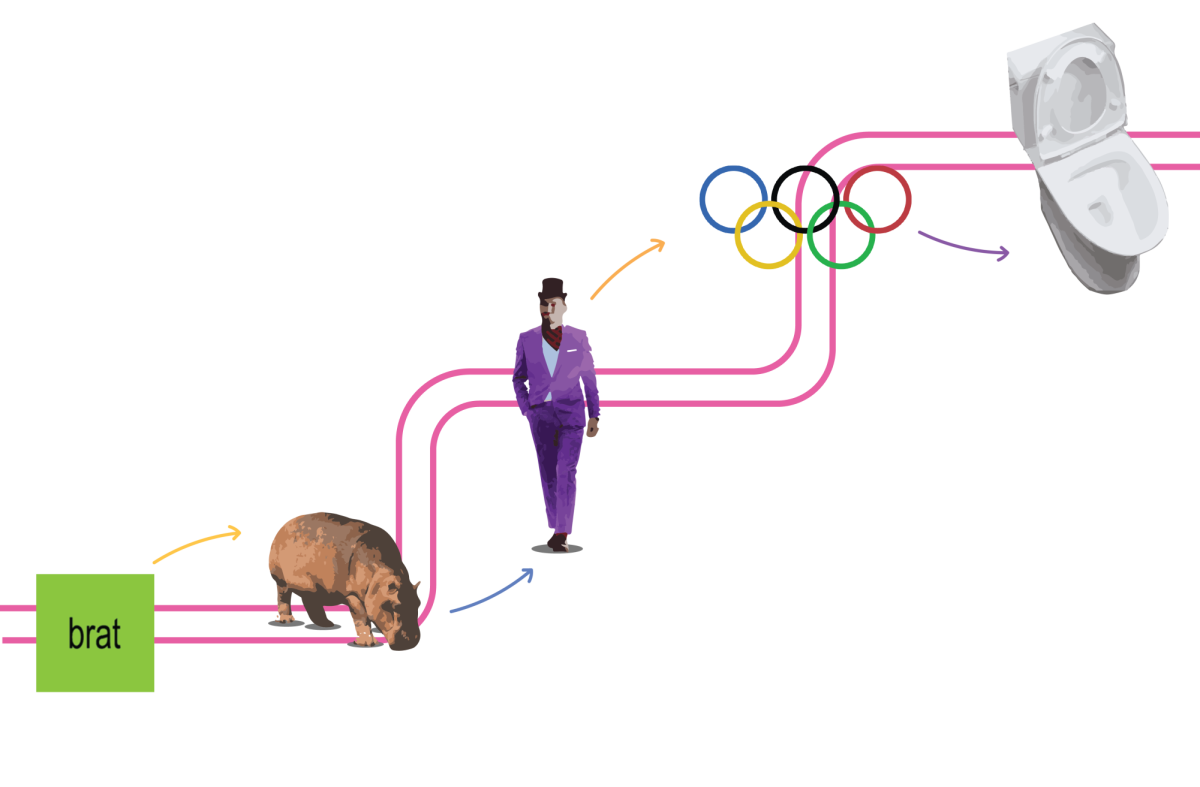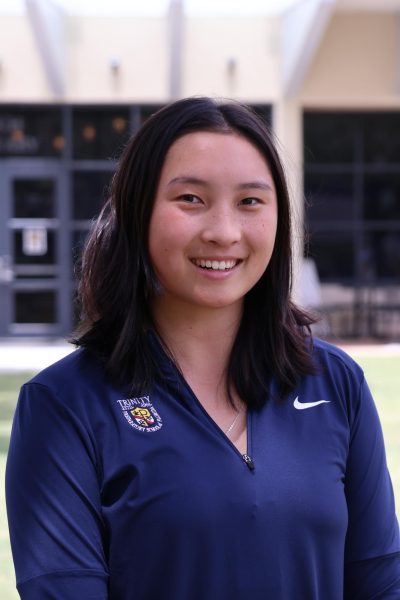Mrs. Ann Skippers
When we have a question, we often turn to our teachers as a source of thought and inspiration. While they seem to exude knowledge in their subject and life, they were once our age and discovering the world. Ever wonder who their inspirations were? Here are five teachers and how they found their passion in teaching:
For eighth grade English teacher Ann Skippers, it was at 8 years old in Mrs. Beverly Goldstein’s classroom when she decided she wanted to teach. Goldstein always found a way to keep her engaged despite Skippers being often ahead of the curriculum. When Skippers reflects on why she became a teacher, she always looks back to Goldstein.
“It was a moment when I was sitting at my desk,” Skippers said. “It was 1978, [Goldstein’s] desk was up at the front of the blackboard. I was looking at her desk and thought I wanted to make someone feel the way she made me feel. I wanted to honor what she did by doing what she did … She gave me this love of being in school that ebbed and flowed.”
In becoming a living legacy of Goldstein, Skippers fell in love with teaching and the synergy that occurs behind the discussions and interactions in a classroom.
“My drive is to teach students how to learn and what to learn, regardless of the subject,” Skippers said. “It is more important to always be curious, and always embrace the learning process and understand how your individual brain works.”
Mr. Thomas Berry
Berry comes from generations of teachers: his grandmother taught Latin and history, his parents math and his sister chemistry. His mother ignored her mother’s advice of not becoming a teacher, and he followed suit. After all, Berry’s best memories were at school.
“From the time I was 5 years old, I spent every minute of every day at the school and just loved it,” Berry said. “It was a pretty small school, but I had 300 big brothers and sisters.”
Berry was working on his math Ph.D. when he realized that the main thing he loved about graduate school was the intro calculus classes he taught to teenagers. He found exitement in working with students.
“Every day is diff erent and exciting,” Berry said. “Everybody’s always thinking about the future … Life can get stagnant for a lot of people and that never happens in schools. ere’s always motion.”
Most of all, Berry was drawn to the relationships he developed with colleagues and students, some dating back to the ‘90s. One student in particular from Berry’s very first class kept in contact with life updates, despite never liking math.
“She always loved writing, and even though I’ve never been an English teacher, she started sending me things that she was writing,” Berry said. “And so I ended up helping edit two or three of her first published books. [I was] able to help her even 15 years after, knowing that she would come to me for help in finding what she really wanted to do with her life.”
That student was Brigid Kemmerer, now a five-times New York Times bestseller for Fantasy Young Adult novels including “A Curse so Dark and Lonely” — a past summer reading book for eighth grade. It is relationships like these, coupled with the school atmosphere, that keeps Berry coming back.
Mr. Gregory Wedel
Unlike Berry, social science teacher Gregory Wedel did not originally plan to be a teacher. Although he always loved to read history and literature, he was pursuing a pharmacy major in college before changing to a double major in history and English. During that time, Wedel was soundmixing for a Christian band called “Blanket” with their guitarist and songwriter who eventually earned a couple of Grammys for mixing Taylor Swift’s first three albums. They also won the Gospel Music Association’s Talent Search for the Southeast. Although teaching initially supplemented his band work, his passion for history and teaching remained constant even after their disassembling.
“It is a love of content, but that’s also a combination of a love of teaching, sharing that knowledge and those intrinsic rewards you can get from students,” Wedel said. “It also keeps me young. I have found I’ve been maximizing my aura this year.”
Mr. Kyle McGimsey
Latin teacher Kyle McGimsey always had a love for linguistics, from mastering Latin since he was young, to self-teaching himself Greek and even learning Sanskrit and the Gothic language. McGimsey also had a passion for Taekwondo. When middle school football did not work out, he found the perseverance behind mastering Taekwondo moves to be incredibly fufi lling. Although Taekwondo taught him the harsh realities of failure (some wooden boards just can’t seem to break), when he became an assistant instructor at his local Taekwondo gym as a high schooler, this sport also revealed another passion: teaching.
“That really opened my eyes to the fact that I enjoyed showing people how to do something,” McGimsey said. “I found it rewarding when people hit a milestone. I found it really joyful … I made the decision of combin[ing] those two things and go into teaching.”
With the combination of these two passions, McGimsey transferred the skills he learned from teaching the hook kick to translating Caesar’s courageous battles. In taking the chance on a random opportunity, McGimsey found the career perfectly suited for him.
“It’s a perfect storm of both, because I do enjoy the teaching, it really wouldn’t matter what it is, but I enjoy the topic so much that I think those two things combined somehow [make] the sum of those things bigger than the parts.”
Dr. Romina Jannotti
Science Department Chair Dr. Romina Jannotti did not discover her love for her subject until college. After completing her Ph.D. in molecular pharmacology, Jannotti took a break from her research with radioactive and neurotoxic chemicals and returned to also her favorite part of graduate school: teaching.
“I enjoy seeing little light bulbs blinker on, and I love when someone asks me a question about how this applies to my daily life,” Jannotti said.
Through teaching AP Chemistry to inexperienced sophomores to her time as adjunct biology professor at Keiser University, Jannotti wanted to foster a learning environment of curiosity — one which she lacked in her own high school experience. She found that she was able to create an exponential effect in shaping young minds, something that research could never do.
“A couple of years ago, I was in an American Chemical Society meeting, and a guy tapped me on the shoulder, and it was an ex-student of mine who was now a chemistry professor at UC Seattle,” Jannotti said. “ at’s the stuff that drives you like, ‘okay I’ve had an impact on someone.’”
Jannotti’s main drive is to impact society as a whole through her role as a facilitator of science.
“All citizens and consumers need to be well versed in [science],” Jannotti said. “ at’s what keeps me coming back into the classroom because I know that it’s not just the teaching part. I have an impact on how people function in society.”
Although these teachers pursued different passions and followed different paths, each of these them arrived at the same destination: a passion in profession, education and people, uniting in a central message for a love for what they do.
“Try it all,” Jannotti said. “Don’t be afraid to fail. I failed chemistry when I was in high school. Just because it doesn’t sink in the first time, doesn’t mean that you won’t find someone else down the road who speaks to you at a different frequency that will make sense … Don’t give up. Do things that seem like [you] in your heart.”




